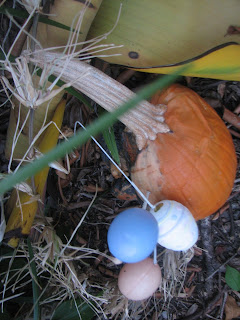Yesterday was the kind of morning, where after a rough Monday afternoon and evening, I had to keep saying to myself, ""Hey, no multi-million bridge collapsed onto a major roadway because of me and my work." I decided that I would go see
A Wrinkle in Time after work.
I had already been considering going, even before my time of despair. It's become clear to me that the movie isn't doing as well as the studio wanted, and with new big movies about to be released, I knew that if I wanted to see the movie on the big screen, I needed to see it soon.
As I've already written in several blog posts, the trick was finding time. Yesterday I saw a window, and I seized it. Because I'm staying late today, I left early yesterday to catch a 5 p.m. show.
I arrived at the movie theatre twenty minutes earlier than I anticipated--amazing how much easier it is to make my way across town when there's no rush hour traffic. I decided to go ahead and get my ticket and refreshments--I had already decided that I would have popcorn and a soda for dinner.
I have now gotten my first senior citizen discount--the ticket seller didn't ask me about my age, but simply gave me the ticket. I decided not to say anything. I felt oddly embarrassed and distressed--do I really look that old? What is the senior citizen age anyway? What made the ticket seller decide I was a senior? The fact that I'm going to a movie in my work clothes? The fact that my work clothes are somewhat frumpy, and certainly not fashionable? Is my skin more wrinkled than I realize? Later, my spouse said, "She probably just gives the discount to everyone." I doubt it, but I love him for saying it.
There weren't many people in the theatre: in the end, it was me, a man and his daughter, another woman alone, and an adult and 2 or 3 children who came in just as the movie started. I love the previews as much as the next person, but 20 minutes of previews grew wearisome.
For the most part, I had a strange, dual reaction to the movie: I both loved it, and it left me thinking it was a bit flat. It is probably the most gorgeous movie I have seen in years, perhaps ever. I loved the themes, of course. Let me make two lists:
What I loved:
--The main character Meg. I should repeat this line 1000 times--the main character makes up for so many faults. And while she's beautiful and not as klutzy as in the book, the fact that she's a young, black female makes her very true to the character.
--I love, love, love that it wasn't turned into a young, love story, even as we could see the beginning of love glimmering in their faces. At the same time, the story shows the importance of all kinds of love, especially the love of family members.
--The costumes were amazing. AMAZING.
--The settings were also beautiful, even the uglier ones. I love what the movie does visually, especially in terms of metaphor and symbol. I love how the visual material supports and cements the mood and themes.
--Have I mentioned how much I love Meg?
--I really, really needed the message of the movie: that we are powerful, even when we feel that we are ugly and worthless, even when the larger society rejects our gifts.
--I REALLY loved the message that our faults might not be faults. In fact, they may be gifts.
--The Mrs. played by Oprah shows us how love can curdle and turn to evil, with those images of various characters in the movie, including the school principal and the woman who wanted to be principal--I thought that part was really strong. Part of me wanted the movie to lift to a larger significance, to show the ramifications on a national or planetary level, but part of me realized that would be over-the-top preachy, in a movie that could already be accused of that trait.
What I less-than-loved:
--The special effects left me feeling tired at times. I know, I know--they probably weren't even that special. The previews for
Ready Player One left me feeling even more exhausted, and that was only a few minutes. But still, I felt the story dragged a bit as the special effects crews showed what they could do.
--The scene where Meg saves her brother left me wishing it had been different, but I couldn't figure out how I would have done it.
--The dad's confession about having devoted too much of himself to work made me want to throw things at the screen--haven't we had decades of this message directed to us? Sure, it's in the mouth of a male, which might make it seem revolutionary, but really??! When he says, "I wanted to hold the hand of the universe, when I should have been holding your hand," I wanted to say, "You were working on important discoveries. It's not your fault that you got held prisoner." After all, from what we saw in the movie, he was a good dad when he was still home.
Overall, I'm glad that I went--especially since I want to show movie studios that if they make this kind of movie, people will go. I'd go again, if anyone asked me--but I might read the book before I went.
I may read the book anyway. Or maybe I'll read another work of theology by L'Engle, or her Crosswicks journals. Madeleine L'Engle has so often offered what I need to read.






















